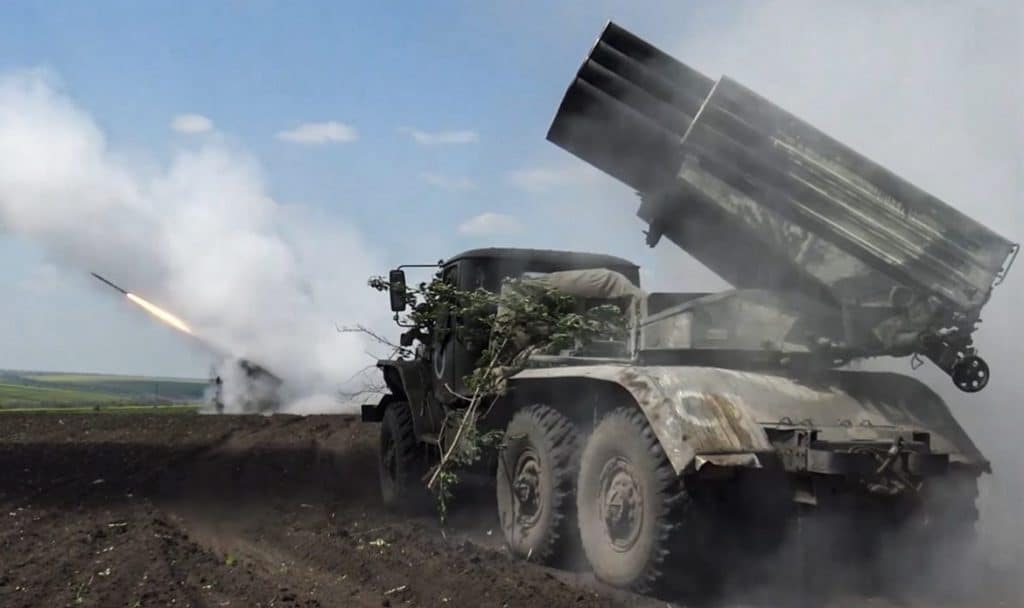World Geostrategic Insights interview with Andrey Kortunov, Director General of Russian International Affairs Council, on the possibility of Russia and Ukraine moving to the negotiating table, and whether there is still a chance to de-escalate the bitter political and cultural confrontation between the West and Russia, and restart a dialogue, a relationship and a mutual respect.

Dr. Andrey Kortunov is the Director General of Russian International Affairs Council (RIAC). He is a member of expert and supervisory committees and boards of several Russian and international organizations. His academic interests include contemporary international relations and Russian foreign policy. He is the author of over 120 publications.
– According to a widespread narrative in Western countries, Russia’s military invasion of Ukraine was a miscalculation on the part of Putin and his circle of hawkish yes men feeding his nationalist obsessions, who underestimated Ukrainian resistance and the West’s response, overestimating the capabilities of Russia’s armed forces and thus leading Russia into a bloody and costly conflict, with international sanctions far harsher than the Kremlin expected and driving the Russian economy toward disaster. Indeed, NATO and the European Union responded from the earliest months of the war with unprecedented sanctions on Russia and increasingly strong political, economic, and military support for Ukraine, with the assumption that frustration over the cost of the war and heavy economic sanctions could lead to a heavy Russian military defeat, economic collapse and isolation of Russia, and a subsequent downfall of Putin. Five months into the war, a conclusion to the conflict seems highly unlikely, Russia continues its slow but steady advance into Ukrainian territory, and sanctions have a negative return on Western countries, especially in European economies. Is it possible that Western countries have also miscalculated, underestimating the resolve of the Russian leadership and the resilience of Russian society, as well as the possible disastrous global effects of a collapse of the Russian economy and its exclusion from financial and trade markets? You called this conflict “a race to self-destruction” and said, “Who will win? That is not the right question to ask. Everyone will lose, and we have to ask who will lose the most in this very difficult situation.” However, could there still be a chance to avert catastrophe, perhaps with a different approach that takes into account the concerns of all parties involved, including the Russians, favoring a return to geopolitical realism, dialogue and the diplomatic method?
AK. This conflict in the center of Europe brings all of us to unchartered waters. It is very hard to get a sense of the degree of resilience that Ukraine, Russia and the West might or might not demonstrate within the next couple of months, not to mention next couple of years. However, it is clear that no side can accept a defeat and to capitulate without taking a prohibitively high level of political damage. I do believe that a diplomatic solution is not beyond our reach provided all sides engage into the business of domestic expectation management and demonstrate more flexibility in defining their respective red lines. No conflict lasts forever, and this one is unlikely to end with an unconditional surrender of one of the sides. The question is how much time is needed to move away from the battlefield to the negotiating table.
– At the outset of the military confrontation in Ukraine, the majority of Westerners had no doubt who to support among the warring parties, and the siding took on the characteristics of extreme dichotomization that often neglected critical and reasoned reflection and manifested itself in the form of Russophobia, with the elimination or condemnation of even cultural manifestations belonging to the Russian world and its history. As written in a Financial Time article, “Russia has become a geopolitical Chernobyl: a moral disaster site, a place of danger to be sealed off. And so many Europeans today dream of a world without Russia.” Perhaps we could also say that a growing number of people in Western countries today detest Russia and Russians more than they might fear a nuclear conflict. As a result, there is growing hostility toward the West and Westerners in Russia as well. What is your opinion? Is there any way to counter this dangerous spiral of hostility between formerly friendly peoples and cultures? Furthermore, you said that “The conflict is about a clash between very different ways of organizing social and political life within two countries …… It is an intellectual and spiritual confrontation between two mindsets,” and “The fundamental incompatibility of the two models of social organization has led not only to a horrendous fratricidal military confrontation,…… but will also dictate how each side will act in the conflict.” Might it be possible to avoid confrontation and establish a dialogue, a relationship, a mutual respect between these two models?
AK. You are right, the anti-Russian sentiments fly high in the West and they are not limited to Russia’s political leadership, but in many cases are extended to the Russian culture, history and the society at large. Of course, this unleashes the same reaction on the other side. Unfortunately, we now enter a vicious circle of mutual resentment and animosity, which will feed the current momentum of Europe-Russia strategic decoupling. I can understand the emotions of the moment, but I consider these trends to be very dangerous and inconsistent with long-term interests of both sides. On the contrary, under the current challenging circumstances we need more contacts and more communication lines at various levels in as many areas as possible. I can only hope that the dust will settle down and in Russia and in the West they will start thinking in terms of damage limitation.
– Last May you wrote in The Economist that the best option to end the military confrontation in Ukraine is an “imperfect but mutually acceptable agreement” that delays the final confrontation between the Russian and Ukrainian “models.” The competition between Ukraine and Russia will continue, but “in a less brutal way” and within the framework of a fundamental compromise between the West and China that will establish a new, more stable global order. Do you currently still believe that this is the most viable option? You also wrote that “Putin needs a victory ……….. or at least he needs something that he can present to his electorate at home as a victory.” But Zelensky needs a victory as well. How could a compromise be reached between these two needs?
AK. I wrote about my preferred resolution of the conflict, which is not necessarily the most likely scenario – at least, for the immediate future. I still believe that a peaceful competition between the Russian and the Ukrainian social and political models would be the best option for the future, but even to start moving in this direction is extremely hard now. Still, with a degree of political will, one could envisage a compromise settlement. The final solution of most sensitive problems – like territorial disputes – could probably be put on a back-burner for some time. Once a ceasefire is reached, one can gradually move ahead on less sensitive matters like POW exchanges, demining, preventing humanitarian disasters, and so on. Of course, a Russia-Ukraine track should be complemented by a parallel Russia-West track.
Andrey Kortunov – Director General of the Russian Council for International Affairs
Since 2011 Andrey Kortunov has been the director general of the Russian Council for International Affairs (RIAC). Previously he was president of the Russian Public Science Foundation and deputy director of the Institute for US and Canadian Studies. He has taught Russian foreign policy at the University of Miami and Lewis & Clark College in Portland (University of California). His academic interests include international relations, Russian foreign and domestic policy and Russian-American relations. He is the author of more than 120 publications devoted to the analysis of Soviet/Russian-American relations, global security, and the foreign and domestic policy of the USSR and Russia.







